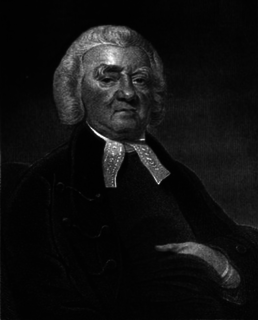A Quote by Samuel Parr
Gratitude is a virtue which, according to the general apprehension of mankind, approaches more nearly than almost any other social virtue to justice.
Related Quotes
The eyes of mankind will be upon you to see whether the Government, which is now more popular than it has been for many years past, will be productive of more virtue moral and political. We may look up to Armies for our Defense, but Virtue is our best Security. It is not possible that any State should long remain free, where Virtue is not supremely honored.
Souls that have lived in virtue are in general happy, and when separated from the irrational part of their nature, and made clean from all matter, have communion with the gods and join them in the governing of the whole world. Yet even if none of this happiness fell to their lot, virtue itself, and the joy and glory of virtue, and the life that is subject to no grief and no master are enough to make happy those who have set themselves to live according to virtue and have achieved it.
lf the attribute of popular government in peace is virtue, the attribute of popular government in revolution is at one and the same time virtue and terror, virtue without which terror is fatal, terror without which virtue is impotent. The terror is nothing but justice, prompt, severe, inflexible; it is thus an emanation of virtue.
Vanity is so closely allied to virtue, and to love the fame of laudable actions approaches so near the love of laudable actions for their own sake, that these passions are more capable of mixture than any other kinds of affection; and it is almost impossible to have the latter without some degree of the former.
In [the soul] one part naturally rules, and the other is subject, and the virtue of the ruler we maintain to be different from that of the subject; the one being the virtue of the rational, and the other of the irrational part. Now, it is obvious that the same principle applies generally, and therefore almost all things rule and are ruled according to nature.
If then, as we say, good craftsmen look to the mean as they work, and if virtue, like nature, is more accurate and better than any form of art, it will follow that virtue has the quality of hitting the mean. I refer to moral virtue [not intellectual], for this is concerned with emotions and actions, in which one can have excess or deficiency or a due mean.
For there is no virtue, the honour and credit for which procures a man more odium from the elite than that of justice; and this, because more than any other, it acquires a man power and authority among the common people. For they only honour the valiant and admire the wise, while in addition they also love just men, and put entire trust and confidence in them.
I mean by intellectual integrity the habit of deciding vexed questions in accordance with the evidence, or of leaving them undecided where the evidence is inconclusive. This virtue, though it is underestimated by almost all adherents of any system of dogma, is to my mind of the very greatest social importance and far more likely to benefit the world than Christianity or any other system of organized beliefs.




































